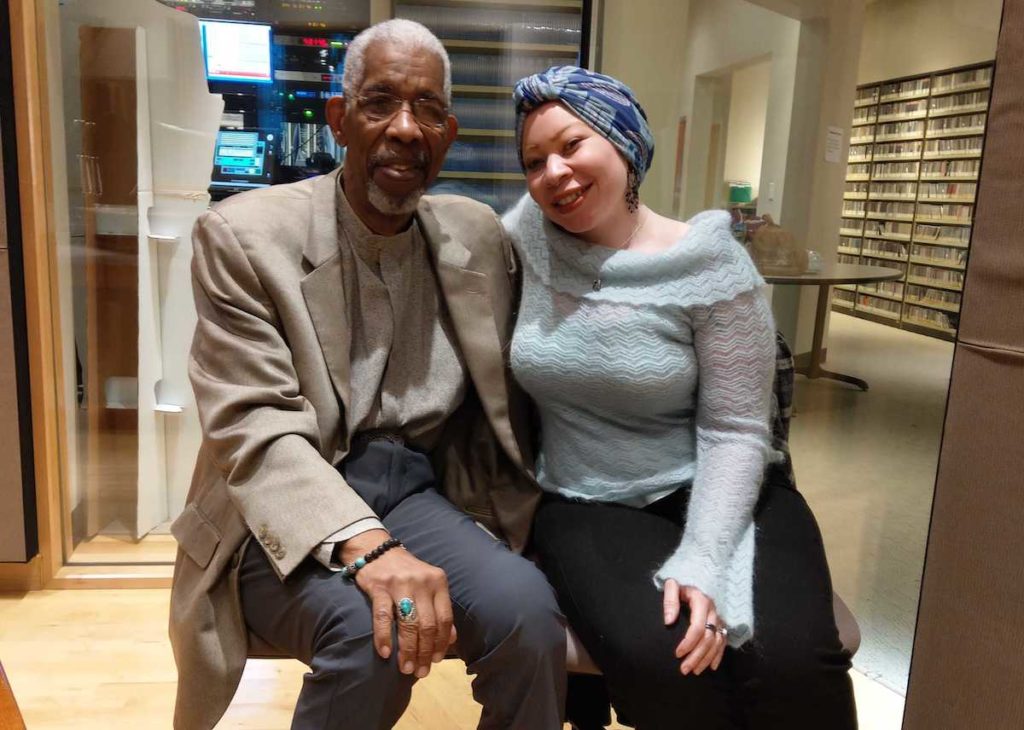
In the Civil Rights Movement of the 1950s and ’60s, Nashville was home to many of the moments that we now think of as iconic.
The lunch counter sit-ins in 1960, where black students faced down violence to protest segregation. The silent march to Nashville’s city hall after the bombing of a black attorney’s home. And the Freedom Rides in 1961, which included many riders from Nashville.
But those moments are just snapshots. They don’t provide a picture of what happened afterward and in the 60 years since.
And that’s where Nashville Public Radio’s podcast Versify steps in, pairing some of Nashville’s most iconic residents with local poets who turn their stories into verse. Host Joshua Moore says he learned just how under-told those stories were — for decades.
Listen to the full interview above, or read below for interview highlights.
Season 4 of Versify is a retrospective honoring the 60th anniversary of the Nashville sit-ins by documenting the narratives of the Nashville Freedom Riders, in partnership with Choral Arts Link and the Nashville Symphony. The new season comes out next month, but you can subscribe now on any podcasting app.
Josh, you grew up in the Nashville area. How much did you know about the city’s role in the movement going into this season?
Joshua Moore: Somewhat embarrassingly, not very much. We learned about the Civil Rights Movement in school, of course, but not much of the localized history. And even in the A.P. course I took, civil rights was maybe a chapter and a half. So when I started learning about this project and sitting down with the Freedom Riders, I was stunned to realize what a pivotal role our city played in the broader Civil Rights Movement and how these students, who are barely any older than I am now, were so instrumental in pushing policy and in moving the federal government to actually enact real change.
So if you’re not getting that history in class, are there places in Nashville where you can find it?
JM: There are some resources, like at the Nashville Public Library [Civil Rights Room]. … There’s the “Witness Walls” downtown that has many of the names and faces inscribed on it. And there is a small section of the Tennessee State Museum.
But largely, no. Dr. Rip Patton, one of the Freedom Riders we interviewed, reflected on how their legacy has been portrayed:
I was disappointed. The [Tennessee State] Museum that is there at Eighth and Jefferson now, it’s all about guns and Civil War, and it’s primarily about what happened here with white folks. The space that they take out during the ’60s is about, like, this corner here.
And that’s something that really stood out to the poet Destiny Birdsong. Here’s an excerpt of what she wrote:
History doesn’t care if you know our names. That for every king, there were 27 sentries smoldering in solitary confinement. Singing and shouting scripture through parched prison walls.
It’s still a little too easy for people to look at the sit-ins and the Freedom Rides and say, “That’s just black history.” But black history is American history. And all of us are indebted to the people who made it possible. So I think that we all have to be committed to ensuring that their legacies continue.
What surprised you about these conversations on this season of Versify?
JM: I think one thing that was surprising is that this is really only a very recently celebrated history, like within the past 12 to 15 years — but that for many of the people who are involved, the consequences were fairly immediate. The Freedom Riders that we spoke to were part of a group of 14 students who were expelled from Tennessee State University, formerly Tennessee A&I, at the behest of people in the state government, because they wanted them to be punished for being involved in resistance. And one of the Freedom Riders, Dr. Etta Simpson Ray, talked to us about how the consequences for her were really most heartfelt by the response of her mother to the news of her expulsion:
She really did count on me. I can remember just her holding that letter in her hand, standing in the hallway in our house. And she was crying because I had been put out of school. I still vividly can see her holding that paper and crying. It has never left my mind.
You know, the same efforts that cost them their educations and risked the well-being of their families also revolutionized our social and political systems. But even though they fundamentally changed the landscape of the city they still live in, it wasn’t until 2008, almost half a century after the fact, that their actions were finally recognized by the state.
You talk to all of these people before the recent wave of protest against police brutality. But what takeaways did you learn from them that would apply to today?
JM: Part of what I realized is that no matter the form of its expression, protests and calls for radical change are always met by cries of opposition by people in power. The students who were involved in the Nashville movement were crossing formal and social boundaries as they protested. They were breaking the law. And to the extent it was possible, they were punished by people in authority. But I think what’s important to remember is that part of the success of their movement was because of a willingness to bear the brunt of those consequences.


